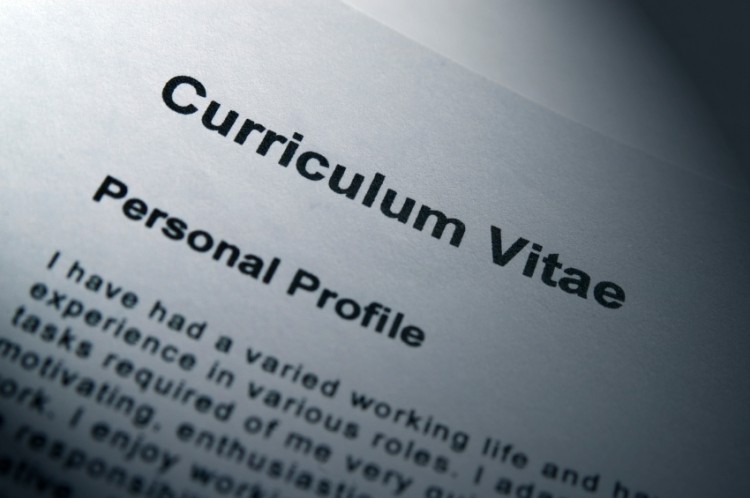Many organisations, if they have sophisticated ATS, could easily set up an automated response system acknowledging receipt of unsolicited CVs. If that isn’t happening I don’t understand why. But even that would not appease some people, who see this lack of engagement as “inhumane” treatment. Although some recruiters are lazy, most aren’t, and there are valid reasons why you don’t hear from them.
Here are 3 reasons why recruiters don’t respond to your unsolicited CVs
#1 Lack of time
I receive between 10 and 20 unsolicited CVs a week. Compared to large organisations that number will be minimal. You can see below a typical message following the acceptance of a LinkedIn request and the receipt of a resume in my in box. Bear in mind this is from someone with whom I have no prior relationship.
I’d appreciate if you could suggest contacts or vacancies where they look for people with my professional profile and experience. I would be grateful for any feedback on my resume.
To be thorough, I or one of my team, would need to examine this person’s LinkedIn profile and CV and then run a search for potential target companies based on any obvious key words. If there are any. Frequently there aren’t. The estimated time for this exercise would be about 30 minutes to do a proper job. Multiply this by even 10 and we are looking at more than half a day a week. This is something a job seeker should do themselves. If they don’t know how they should seek out help from a career coach. If funds are limited, there are lots of free online resources to support them.
Job seekers should realise that just by being a first level connection to a recruiter or hiring manager, provided that your LinkedIn profile is complete and has a good sprinkling of key words in line with your goals, then our researchers will find you when you appear in our LinkedIn searches.
Recruiters are not always career coaches. It happens that I am. But then a request has to be made for career coaching.
#2 Bad timing
It sometimes happens that unsolicited CVs land on a recruiters’ desk’ at exactly the right time and serendipity kicks in. Your background and experience are in perfect sync, or even near enough with an ongoing assignment. For the rest of the time most unsolicited CVs and cover letters are generic and don’t specifically state your value proposition as it links to a particular opening and why you stand out from any other candidates. This puts you at an immediate disadvantage.
Recruiters work for, and are paid, by their clients and that is the first point of misunderstanding. Most won’t interview candidates who send in unsolicited CVs, unless you have the type of experience that they regularly place. They will also be more inclined to engage if you have a hard-to-find skill set, are very senior (C-level,) can provide market intel, or can help generate future business for their organisation (senior HR professional.)
If you don’t fall into those categories your chances are slim to maybe even zero.
Today with European GDPR regulations there are time limits to how long we can keep your details. Many search firms no longer keep data bases.
#3 You wait until you are desperate
Most people don’t have an ongoing career management strategy and then try to make contact with recruiters when they have an urgent need. This is not the best way to go about things. If you are smart, you will build up your network connections before you are desperate. Any relationship is reciprocal, so I am always surprised when potential candidates don’t seize the opportunity to engage with recruiters either at all, or correctly, when they are ever approached. If you are not getting calls from anyone in the hiring process it will be because your profile isn’t visible enough.
It is rare for a recruiter to meet a candidate if they don’t they have an active assignment, unless as stated previously your profile is “special,” and most aren’t. If you are have been successfully placed by a recruiter or head hunter, make sure you stay in touch with them – a thank you note and an onboarding update is all it takes. If you don’t go forward in any search or the match isn’t right, send a snippet of market information that might be helpful in the future, or an article that might be of interest. There are also other ways to connect via social media: LinkedIn posts, Facebook pages or Twitter. It’s basically about keeping a relationship alive and it’s easier now than it ever was.
This post is an explanation of why certain things happen in the hiring process. It’s definitely not about a lack of humanity on the part of the recruiter. If you have any other ideas – let me know!
If your organisation is looking for professional executive search and candidate identification services that go above and beyond – contact us NOW.






Women are the major consumers as well as the largest percentage of employees in the arts. Yet their presence as artistic leaders remains low or, in some sectors, non-existent.
Of the 28 organisations presently funded under the Australia Council framework of the major performing arts, only three, Black Swan Theatre Company, Orchestra Victoria and the Queensland Symphony Orchestra, have female artistic leaders.
Studies repeatedly show that gender diverse boardrooms are good for business**. But despite the evidence that equality at a senior level improves the bottom line, there still remains a disparity in representation at c-suite level, across all sectors.